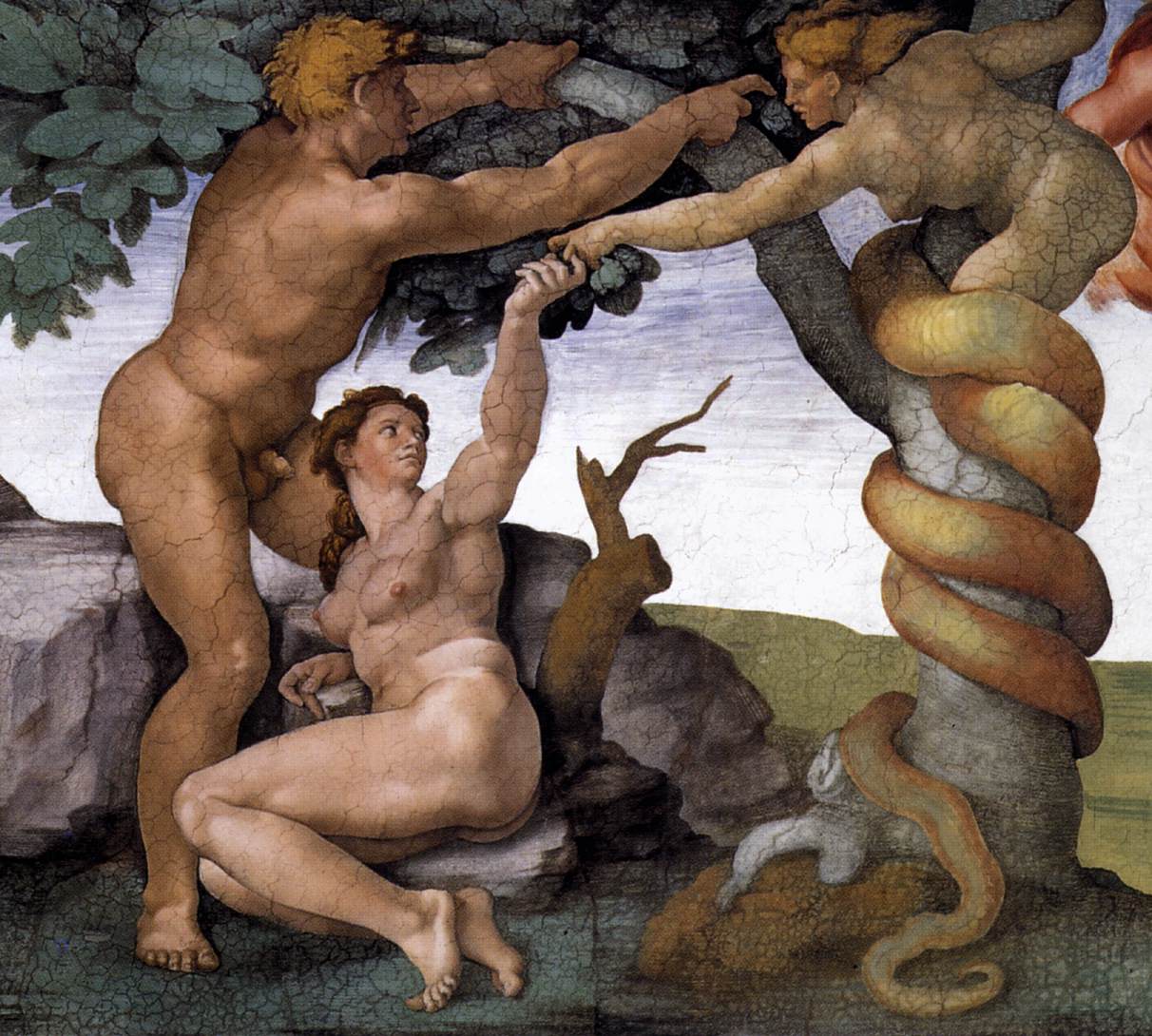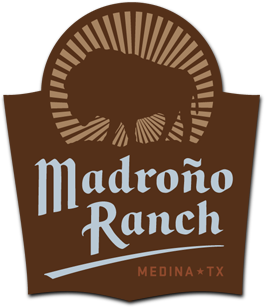
Sin is behovely, but all shall be well and all manner of thing shall be well. (Julian of Norwich)
Sin is our only hope. (Barbara Brown Taylor)
The most dangerous of all falsehoods is a slightly distorted truth. (Georg Christoph Lichtenberg)
At dinner the other night I managed to elicit a full-brow furrow from Martin and Thea both. Considering the Kohout talent for growing hair, a full-brow furrow is a fierce and fearsome thing. Two furrowed Kohout brows is enough to send the insecure in search of a blankie, a pacifier, and a nice safe closet. I’m glad Lizzie and Tito weren’t there, because they might have furrowed as well, presenting far more furrowing than any reasonable person should ever be expected to stand up against.
The cause of dismay was my claim that sin is a useful category by which to examine human affairs. “You can’t call people sinners!” said my shocked and furrowed daughter. She was entirely right on one level, of course. We had been talking about the horrifying events in Norway, in which Anders Breivik, a thirty-two-year old radically conservative Christian (or perhaps “Christian”), killed 77 people, most of them children at a summer camp, many of them related to members of Norway’s ruling elite who presumably crafted the weak anti-immigration laws that allowed the recent influx of Muslim immigrants that so unglued the shooter.
History tends to support this maxim: virtually anyone who thinks he’s been given the power to condemn his neighbors for what he perceives to be their sins will be at the heart of a tragic, absurd, and/or evil situation. The track record of self-proclaimed prophets is pretty bleak. Thea’s well-taken point was, I think, that if I call someone a sinner, I’m at the top of a slope slippery with the blood of innocents. To many, calling someone a sinner implies that you’re in a position to judge, somehow not implicated in the fray. If you see sin around you and identify it as such, then somehow you remain outside the fire of judgment. You are rendered innocent so long as someone else is guilty. It seems like a good deal, especially if you’re someone inclined to condemn others (like “Christians”). It seems like a very bad deal if you’re the sinner or if you have any anxieties about absolutist legal codes.
Even so, sin is a concept we’re naïve to dismiss, whether or not we identify ourselves as religious. In the broader culture of the United States, there are two gauges by which we measure perceived or actual misconduct: mental health and the legal code. Misconduct is the result either of mental illness or willful disregard for civic order. While these are necessary ways to gauge human misconduct, they don’t cover the full range and depth of human experience. To imagine that they do creates a story about the human person and human culture that’s missing a bunch of pages in the middle. (I’ve cribbed this analysis from Barbara Brown Taylor’s wonderful book Speaking of Sin: The Lost Language of Salvation.)
One of the problems in talking about sin is that it’s a word in a technical lexicon. Just as projection is one of those ideas bandied around by people who’ve never studied Freudian theory or its nuances (like me), sin has spilled over its technical boundaries and thereby become diluted, distorted, and generally misunderstood. As far as I can tell, it’s as misunderstood within the Christian community as it is outside of it, in part for the same reason: it’s considered to be a subset of either mental health or the legal system and not its own discrete and rich category.
While Anders Breivik probably has mental health issues and clearly broke all kinds of laws, I suspect that there are many other reasonable people besides Thea who would balk at identifying sin as an important component of his story, although it may be that story’s most salient component. While breaking laws is often a side effect, sin’s primary work is the precarious, discordant elevation of the self above the sturdy, harmonious network of God, self, and neighbor. With that definition in mind, you can be a law-abiding, mentally healthy member of a community and still be a sinner. Indeed, if you’re a Christian, you’re guaranteed to be one; that’s what the story of the Fall is about.
One of the persistent themes in both testaments of the Bible is that God is the only judge of sin because humankind has a severe allergy to identifying sin as sin when it’s tied to self. We have a very long history of pointing a finger at our neighbors and saying, “S/he made me eat it.” In writing the covenantal community’s early history, the biblical writers were uneasy with the idea of kingship. Even when the kings were beloved of God—and most of them were not—the Biblical writers point out time and again that human authority is almost ludicrously unable to judge with any regularity what’s pleasing to God.
I’m exercised about sin because so many critical misunderstandings of it seem to be spotlighted right now, and I’m trying to figure out how it is that I’m right and they’re wrong. The governor of Texas is about to declare himself a candidate in the Republican presidential race, having struggled to discern if he’s called by God to do so. The backdrop of his declaration will be the rally last Saturday in which he and several thousand others prayed for a troubled America. He prayed for the military and political leaders who cannot see the light in the darkness. There was no indication that he thought he might be one of those blind leaders. For all the Bible-reading that went on, no mention was made of the fact that in the Bible God never gives the rich and powerful more power when they ask for it. Instead, God regularly undermines them by granting it to the least or youngest in the community.
In a terrific op-ed piece in the Austin American Statesman, Jim Rigby, a local Presbyterian minister, pointed out the absence of several other key Biblical passages at the rally, like the passage in which Jesus expresses a clear distaste for public shows of prayer. The common thread among the passages Rigby mentions is an awareness of our steady insistence on seeing sin as something “out there” without any indication that it resides ineradicably “in here” as well.
But there’s a problem for those who see sin as residing ineradicably “in here,” who believe that we must struggle constantly to set self-interest under the discipline of a higher and more generous law. Reinhold Niebuhr, whom I always seem to read in the deepest, hottest part of summer, calls these “children of light,” in opposition to the “children of darkness,” the moral cynics who “know no law beyond the self.” According to Niebuhr, the problem is that the children of light are dumber than doorknobs. They fail to account for the power of sin in both individual and collective lives, and even within and among themselves. Children of light tend to think that if they reform, correct, educate, convert, clean house, start over, then human affairs will radically improve. Niebuhr says fuggedaboudit: “no matter how wide the perspective which the human mind may reach, how broad the loyalties which the human imagination may conceive, how universal the community which human statecraft may organize, how pure the aspirations of the saintliest idealists may be, there is no level of human moral or social achievement in which there is not some corruption of inordinate self-love.”
Niebuhr identified Marxists as children of light whose stupidity allowed their creed to become “the vehicle and instrument of the children of darkness.” I believe that Perry and his followers are also children of light. Their creed is that eliminating homosexuality and abortion, giving free reign to business, and insisting on Christianity’s primacy will renew America, a creed as naïve as Marxism and as easily made into the tool of moral cynics. Of course, as a self-confessed utopian, I’m a child of light as well. I’m looking for admission to another group, made up of what I’ll call children of dawn. They know the power of sin, they work to name it in themselves and in the world, and their despair or anger at knowing that they can’t conquer it by themselves is overridden by hope and generosity. I think of St. Paul, that proud Pharisee, who opened the doors of Christianity to the uncircumcised and the eaters of unclean foods and invited them to come in, sit down, and eat. More recently, I think of people like, say, Nelson Mandela, but children of dawn don’t tend to be particularly visible until you bump into them in the darkness. The hospice nurses who helped us through my mother’s death were children of dawn. The friend who tells you a hard truth with great love. The artist who brings new beauty into the world. The teacher who gives his students his best work and requires that they return it with interest. The attorney who works on death row. The director of a no-kill animal shelter who cooks Thanksgiving dinner for all the creatures in her care. The soldier who struggles to treat the enemy with respect.
It’s a long list, thank goodness, and unrestricted by any creed or class. There’s no litmus test for joining it, other than the willingness to do the wretchedly hard work of forgiving each other, ourselves, and the world again and again and again. Most of us would rather sleep in than be children of dawn. But when we wake up and acknowledge sin’s destructive power at work within each individual, corporation, and nation (even and especially the ones we love); when we approach each other with the profound humility that this knowledge engenders; when we move ahead in good faith knowing that we may be wrong and need to change course, this is when the power of sin begins to loosen its grip. Furrow all you want, but that’s why I think sin is behovely, and the acknowledgement of sin is our only hope.
What we’re reading
Heather: Reinhold Niebuhr, The Essential Reinhold Niebuhr: Selected Essays and Addresses
Martin: Erik Larson, Isaac’s Storm: A Man, a Time, and the Deadliest Hurricane in History

Beautifully written. Thought-provoking, as always. Thank you Heather!
Brilliant and thought-provoking as usual! I just saw a movie that is relevant to this post — “Of Gods and Men” about the Trappist monks who were kidnapped in Algeria in the 90’s. I got it from netflix. It’s really excellent.
You got some theological chops!
Yes, Ma’am, you knocked this one out of the park for this fan.
Wow! You grabbed my head, heart, and soul with this one.
Dear one, this is going into the “keepers” folder for sure. Btw, reading the autobiography of Teresa of Avila dovetails nicely. The sin we MUST name is our own.